SVOLT targets five-minute charging time with ‘Short Blade’ battery cells
The new SVOLT ‘Short Blade’ 5C fast-charging battery based on LFP, which can be charged from ten to 80 per cent in ten minutes and is said to offer a service life of 3,500 charging cycles – with an energy density of 188 Wh/kg, is about to go into series production. Series production will begin in December 2024. SVOLT first announced an LFP cell with a charging rate of 5C in December 2023.
In addition to the charging capacity – a 50 kWh battery could be charged with 5C at a peak of 250 kW – the high number of cycles is particularly eye-catching: today’s lithium-ion cells are usually designed for 1,000 cycles. SVOLT itself calculates that with a 60 kWh battery and a consumption of 20 kWh/100 km, this is already sufficient for 300,000 kilometres. With 3,500 cycles, such a battery, which is not atypical for a compact model with 60 kWh, would already have a service life of over one million kilometres.
SVOLT is demonstrating the potential of short blade technology with its world première of a 6C fast-charging battery based on NMC. According to the manufacturer, it allows charging from ten to 80 per cent SOC in five minutes. If we take a 100 kWh pack of a large long-distance car as an example and also a consumption of 20 kWh/100 km, such a vehicle with 6C would not only be able to be charged with 600 kW at its peak, but would also be able to recharge electricity for 350 kilometres in those five minutes. SVOLT itself speaks of 500 to 600 kilometres when “charging for the duration of a cup of coffee”.
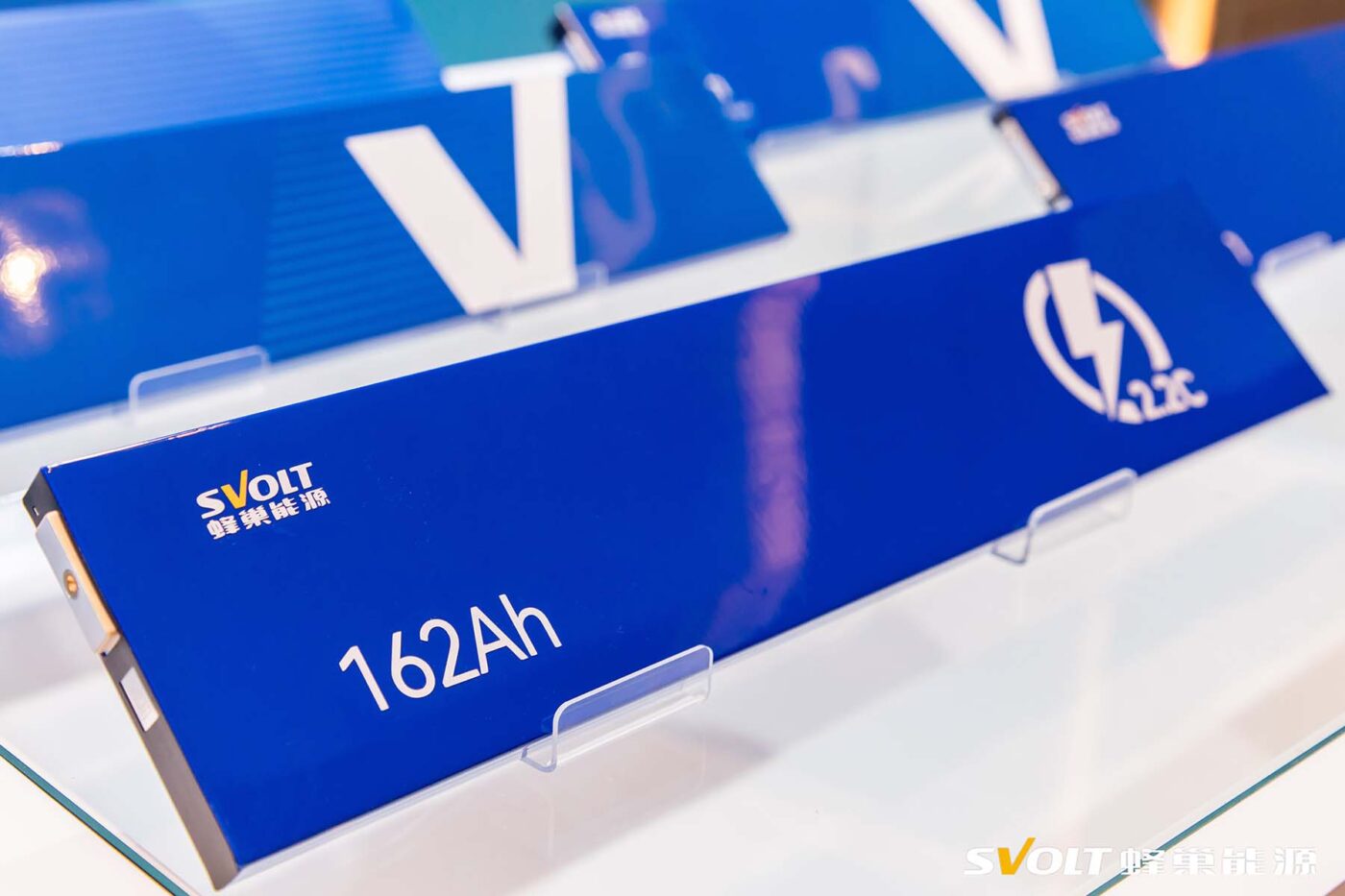
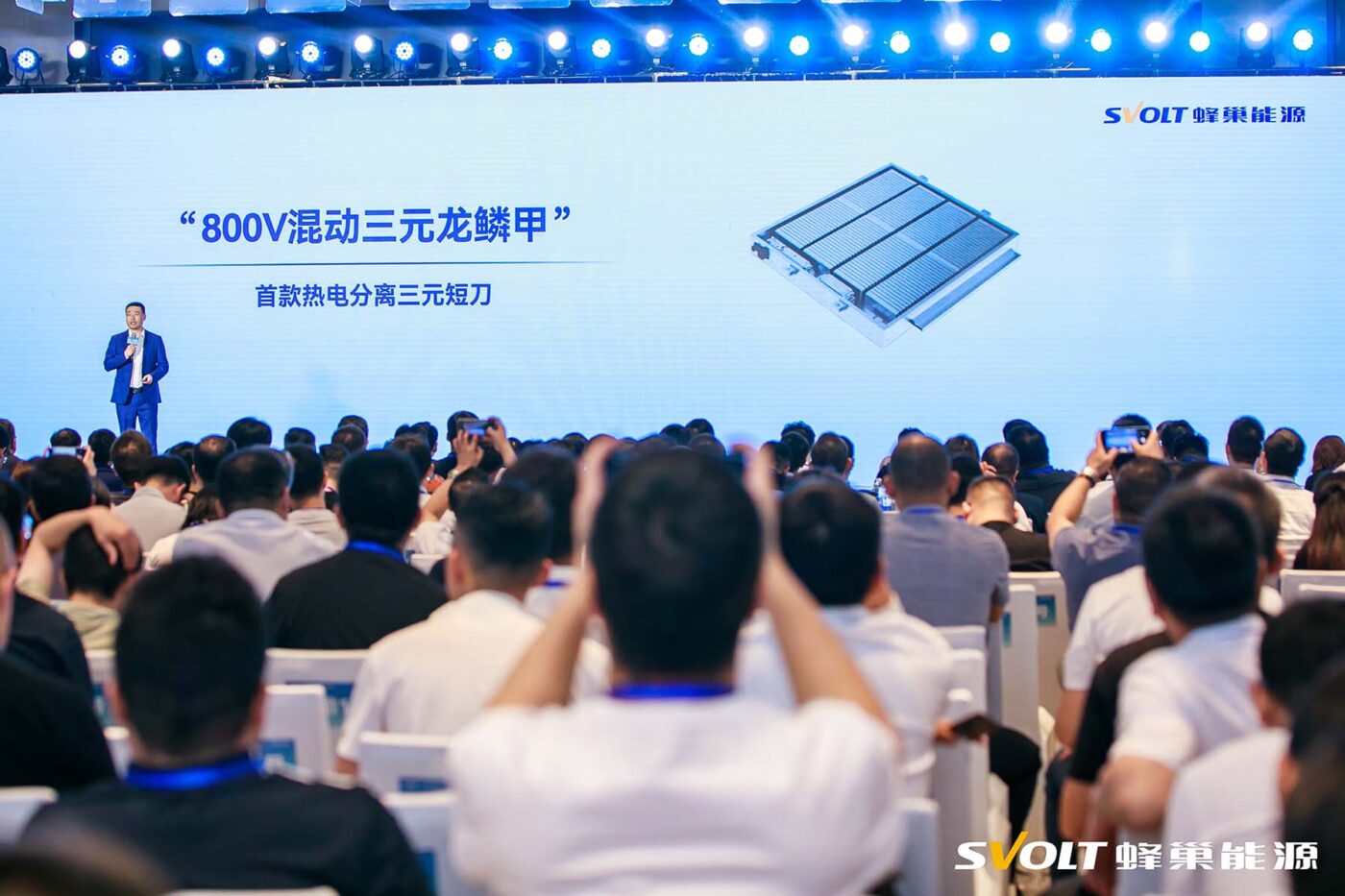
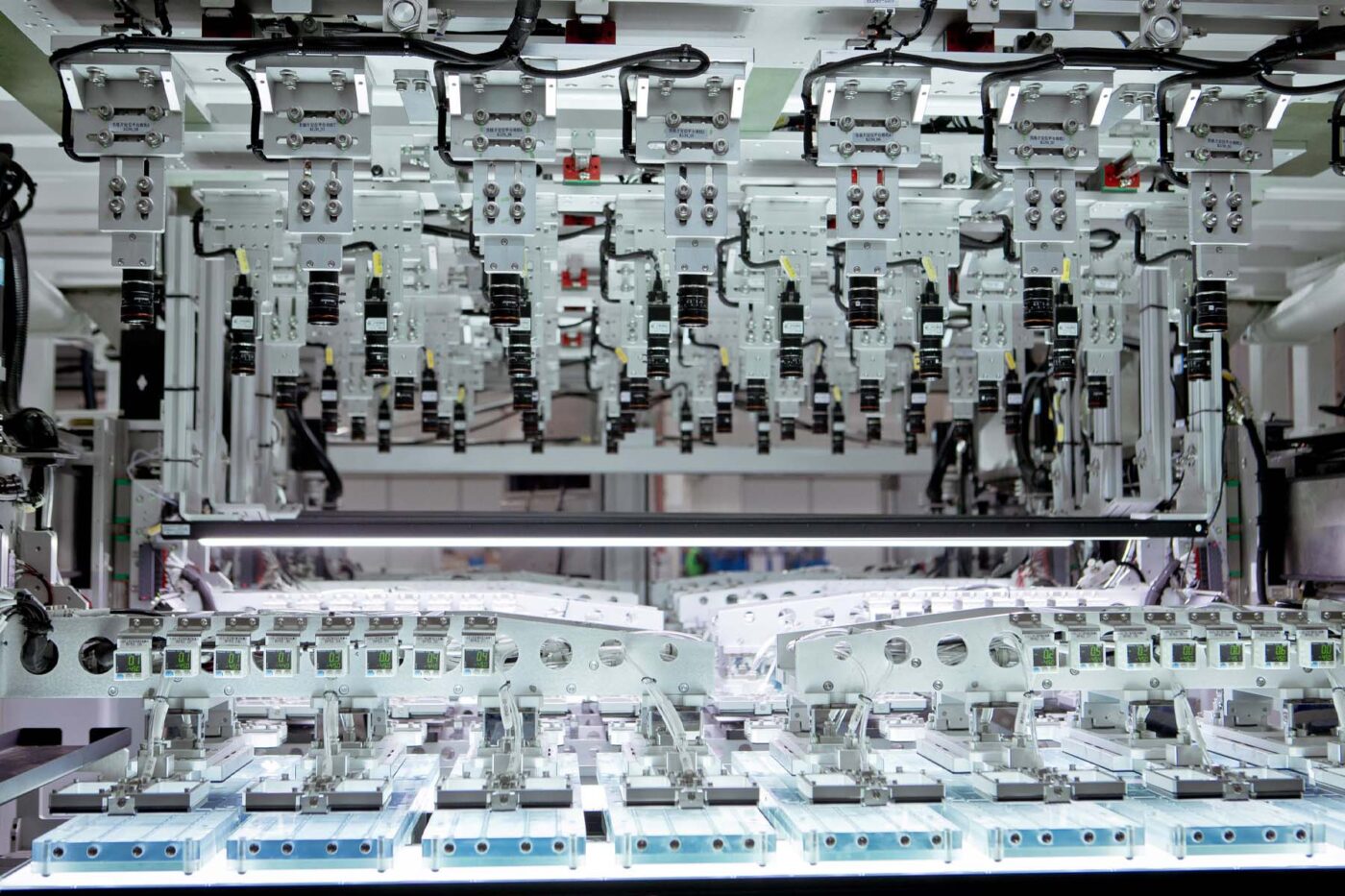
As the ‘short blade’ cell with NMC chemistry has an energy density of 240 Wh/kg, battery packs with an energy content of 100 to 120 kWh should be possible with it, according to SVOLT. However, the company does not specify when exactly this 6C variant will go into production.
SVOLT also newly introduced the ‘800 Volt 4C PHEV Dragon Armor’, an NMC battery for plug-in hybrids. This is not only intended to bring 800-volt technology to the world of plug-in hybrids but also to enable a purely electric range of 300 to 400 kilometres in a PHEV thanks to an energy density of 250 Wh/kg, as SVOLT calculates. Production is scheduled to start in mid-2025.
Until now, SVOLT has specialised in pouch cells, in which the outermost layer consists of a flexible film pouch. The ‘short blade’ battery is a prismatic cell with a stable housing. The trend in the automotive industry is towards cell formats with a fixed housing (cylindrical cells or prismatic cells), as these can be structurally loaded in new cell-to-pack concepts in order to increase the energy density at pack level. SVOLT made a conscious decision in favour of prismatic cells and against cylindrical cells: ” Cylindrical cells are widely used due to their high energy density and established production standards. However, there are considerable challenges in their production, including high costs and complex manufacturing processes.”
Source: Info via email

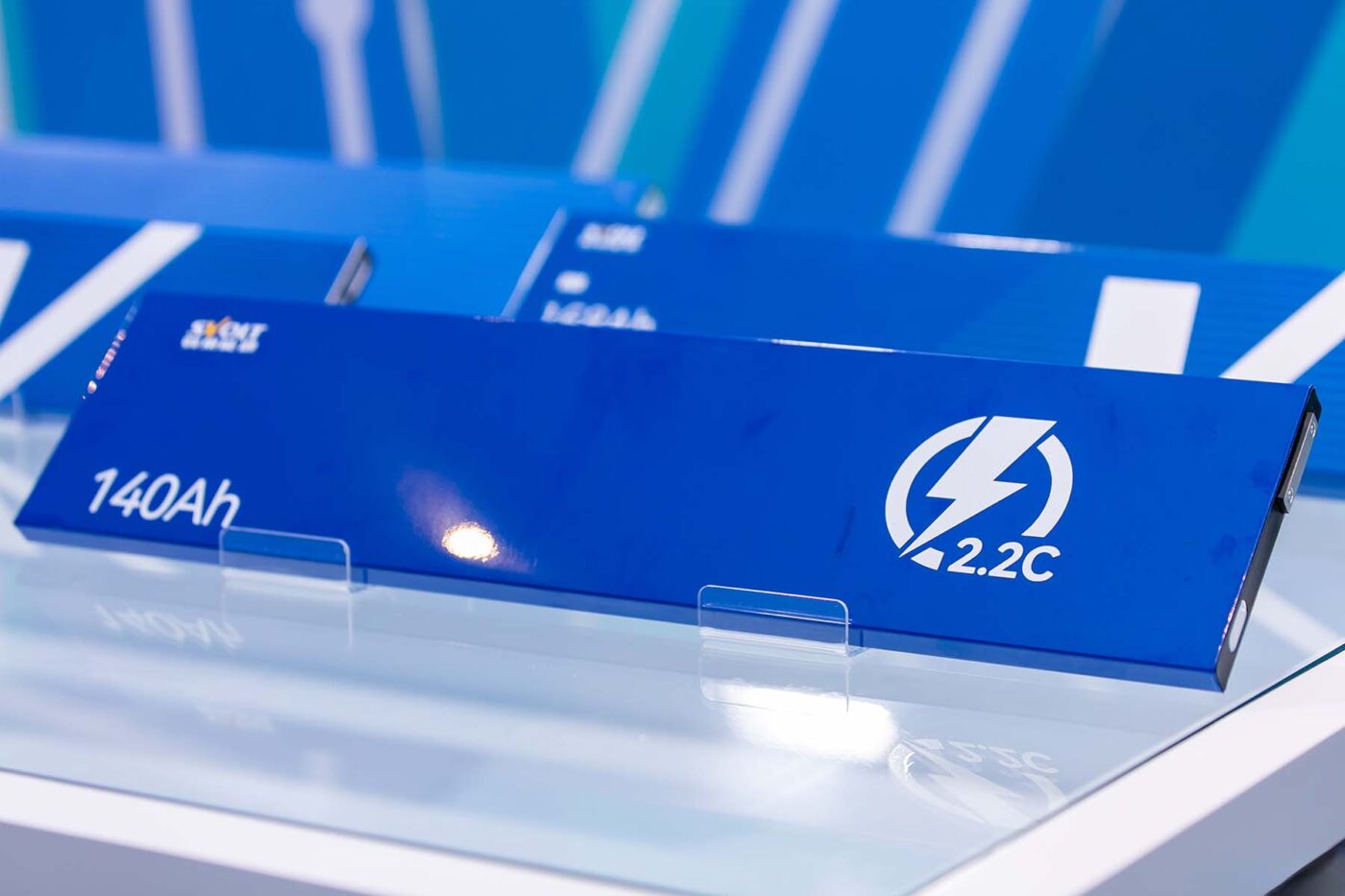
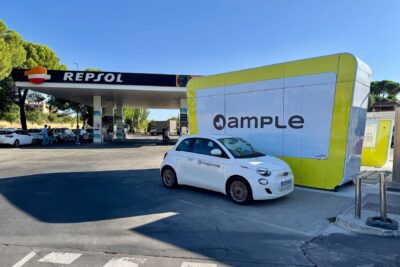


1 Comment